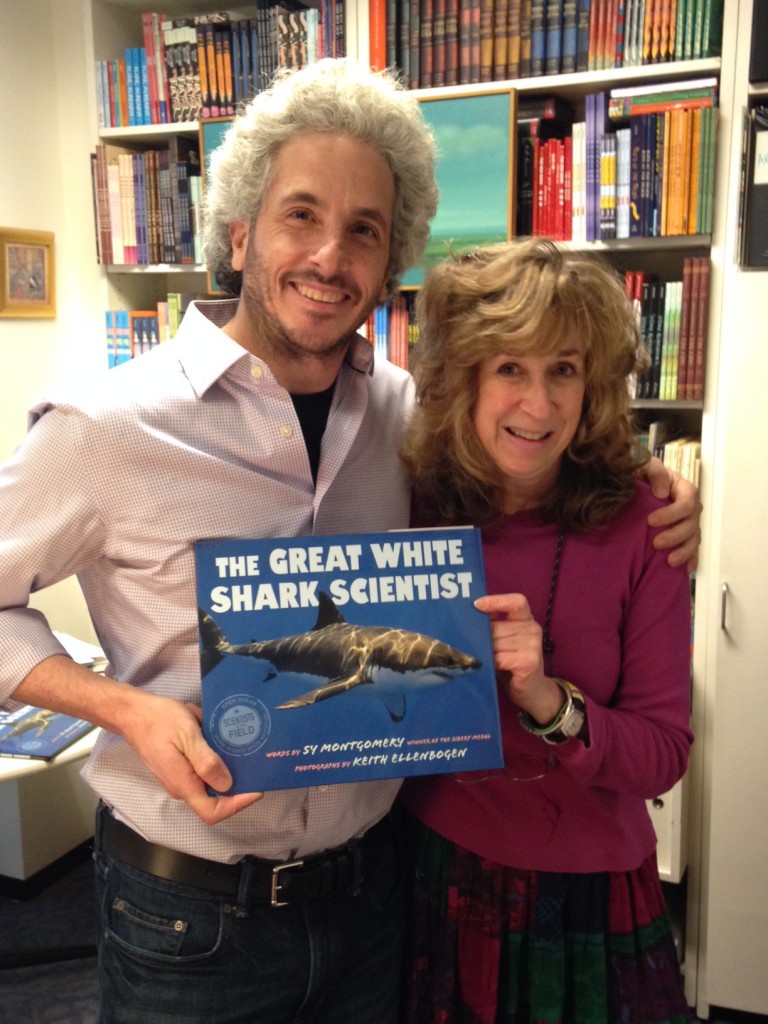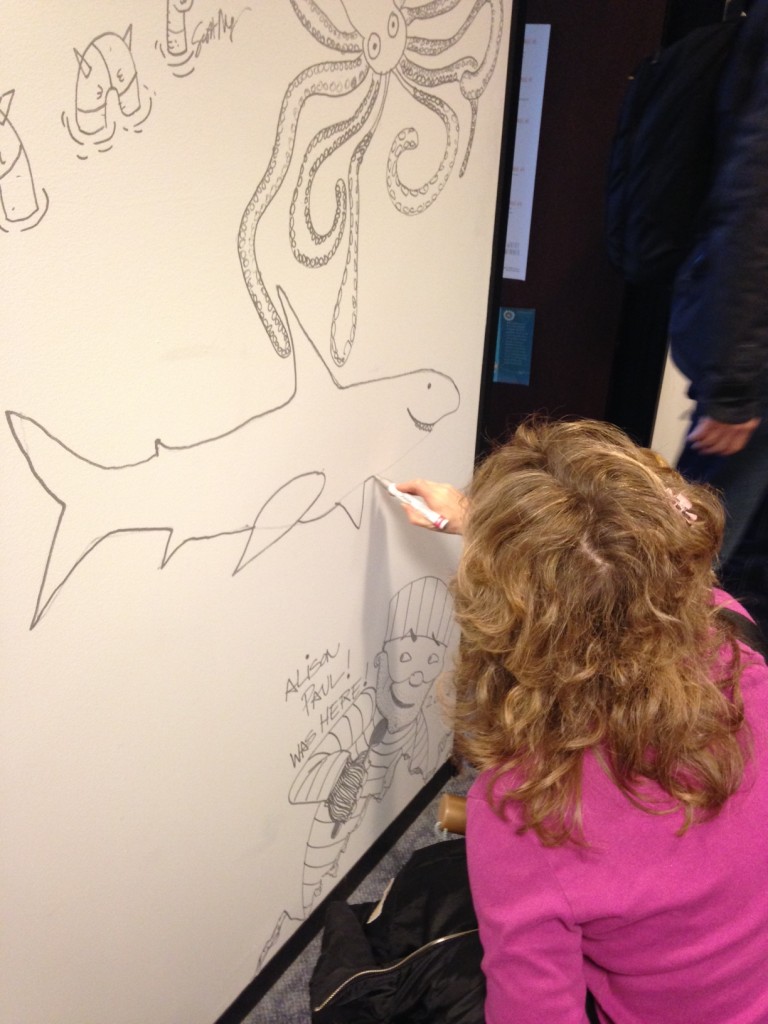 Inky’s escape is the talk of the town. Inky may have left the building (the National Aquarium of New Zealand) but he’s still on our minds. The NewYorker.com called Sy to discuss octopus intelligence. Just what was Inky thinking? Hard to say, of course, but it doesn’t mean he wasn’t thinking. “It’s easy to project our own feelings onto animals—and that’s a mistake,” Sy told The New Yorker, “but it’s a worse mistake to think that we are up on some kind of pedestal and that animals can’t also think, feel, and know.”
Inky’s escape is the talk of the town. Inky may have left the building (the National Aquarium of New Zealand) but he’s still on our minds. The NewYorker.com called Sy to discuss octopus intelligence. Just what was Inky thinking? Hard to say, of course, but it doesn’t mean he wasn’t thinking. “It’s easy to project our own feelings onto animals—and that’s a mistake,” Sy told The New Yorker, “but it’s a worse mistake to think that we are up on some kind of pedestal and that animals can’t also think, feel, and know.”
The Soul of an Octopus has returned to the Best Seller list. The paperback debuted at number seven in March and in April it moved up a spot to number 6 on the New York Times Animals Best Seller list.
Arms Across America. The new paperback edition of The Soul of an Octopus is on several regional best seller lists:
#5 — New England Independent Booksellers Association
#4 — Pacific Northwest Booksellers Association
#14 — Northern California Booksellers Association
#15 — Midwest Independent Booksellers Association
The paperback is already in its third printing.
The Consequences of Consciousness. Leslie Thatcher has interviewed Sy for Truthout. They talked about how we treat animals. From the interview: “The idea of the tree of life is a beautiful metaphor, but it’s not ladder-like; it doesn’t start in the dirty ground and end with us humans up above on the top with the angels. I personally don’t want to be on the top. It’s lonely there. I’d rather be embedded with the family. There are definitely ways of understanding the reality of the world that we humans cannot access with our senses. Other creatures, including birds, can see colors we can’t — and we know these colors are real. There are truths out there that have been discovered by other species that we may never discover and understand.”
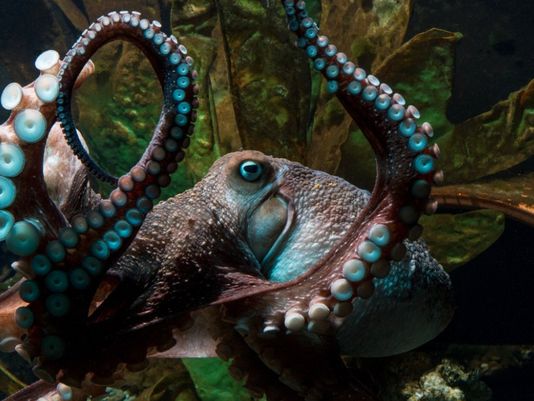 Inky Escapes! The Octopus flees his New Zealand aquarium and swims to635961944895460363-Screen-Shot-2016-04-14-at-1.33.58-AM freedom. Sy was busy fielding questions from The Christian Science Monitor, Slate, the Canadian Broadcasting Corp. USA Today, and Public Radio International. Here’s one story from PRI.org and USA Today:
Inky Escapes! The Octopus flees his New Zealand aquarium and swims to635961944895460363-Screen-Shot-2016-04-14-at-1.33.58-AM freedom. Sy was busy fielding questions from The Christian Science Monitor, Slate, the Canadian Broadcasting Corp. USA Today, and Public Radio International. Here’s one story from PRI.org and USA Today:
A well-loved octopus named Inky escaped recently from the National Aquarium in New Zealand. Aquarium manager Rob Yarrall says the lid to the octopus’ tank was left slightly ajar after maintenance one night.
“He found this rather tempting, climbed out,” Yarrall says, “and he managed to make his way to one of the drain holes that go back to the ocean, and off he went, and didn’t even leave us a message, just off and went!”
The escape happened earlier this year, and hit the New Zealand national press Tuesday.
“Octopuses are fabulous escape artists, and it’s absolutely not surprising that he saw an opportunity to explore and he took it.” said Sy Montgomery, author of The Soul of an Octopus.
According to Montgomery, octopus escapes from aquariums are common. “They can squeeze through the tiniest spaces and easily, a 100-pound octopus can squeeze through an opening the size of an orange,” Montgomery said.
The drain pipe in the New Zealand aquarium was about 6 inches wide. Octopuses can typically squeeze through an opening as small as their mouths, or beaks, as they are the only hard part of their body.
“Their muscles are less like our biceps than our tongues,” Montgomery said, “so they can flow in a way that, even if our muscles were detached from our bones, our muscles could not do.”
A slime covering Inky’s skin would have prevented it from drying out as he oozed from his tank to the drain that led to his freedom. And the suckers on his tentacles, which octopuses can use to taste food, would have also helped propel him across the floor. “Each sucker can lift an enormous amount of weight.” Montgomery said.
According to Montgomery, a 3-inch-diameter sucker on a giant Pacific octopus can lift 30 pounds.
Montgomery says octopuses get out of aquariums so frequently not because of their Houdini-like escape skills, nor because they’re lonely — they’re solitary creatures — but because they are generally super curious.
“It doesn’t mean that Inky was unhappy where he was,” Montgomery said. “Astronauts don’t go into outer space because they don’t like Earth, they just want to see what else is out there.”
Aquarium manager Yarrall says Inky was brought to the aquarium from a nearby reef just a few years ago, so it’s likely he’ll be able to survive in the wild. And while he didn’t leave a note, there was a different telltale sign that he did, indeed, escape and wasn’t stolen: a trail of water from his tank to that drainpipe of freedom.
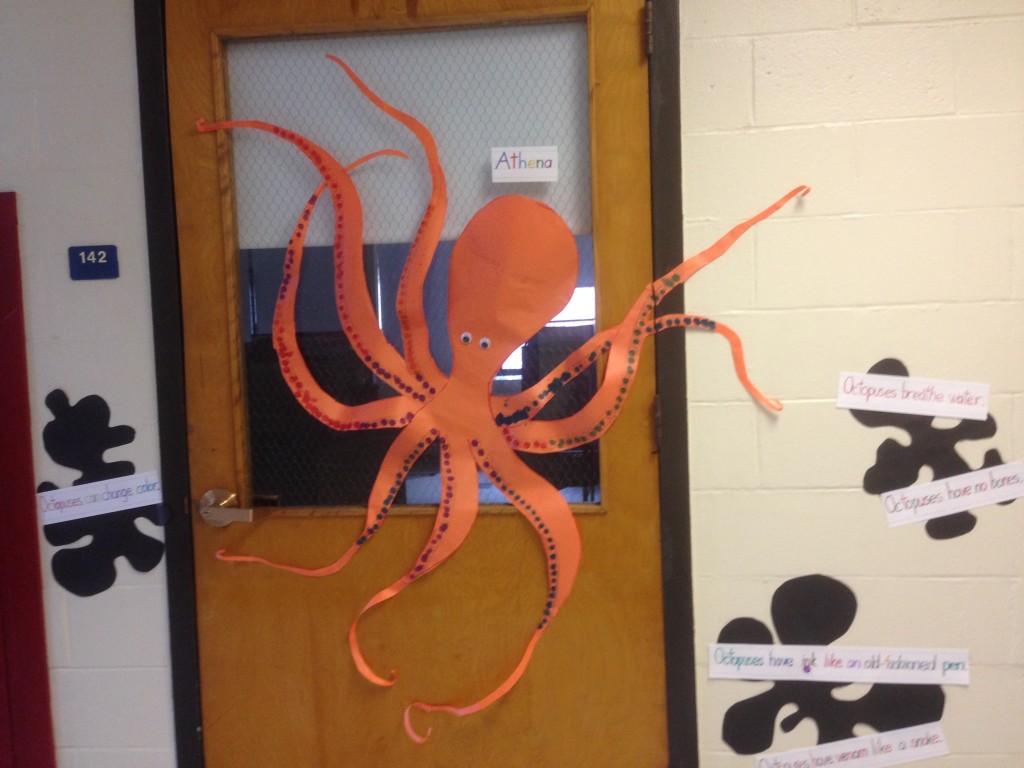
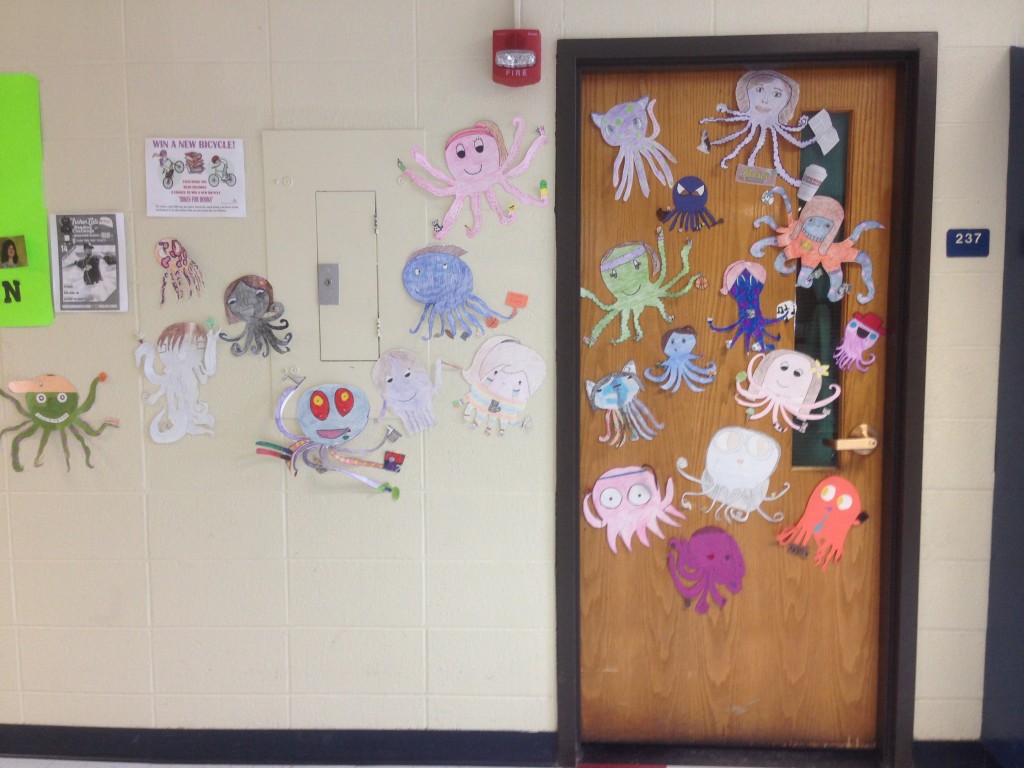 The teachers and the students at the James Mastricola Upper Elementary School in Merrimack, New Hampshire, went all out, decorating with themes from Sy’s books. Here are two doors, above and below.
The teachers and the students at the James Mastricola Upper Elementary School in Merrimack, New Hampshire, went all out, decorating with themes from Sy’s books. Here are two doors, above and below.
The Great White Shark Scientist is a Junior Library Guild Selection. The Junior Library Guild is a book selection service serving many thousands of libraries, which rely on them to guide their book purchases for young readers. The Guild reviews books in advance of publication and select those they consider the best.
China Bound. The China Ocean Press will be publishing the Chinese edition of The Soul of an Octopus.
